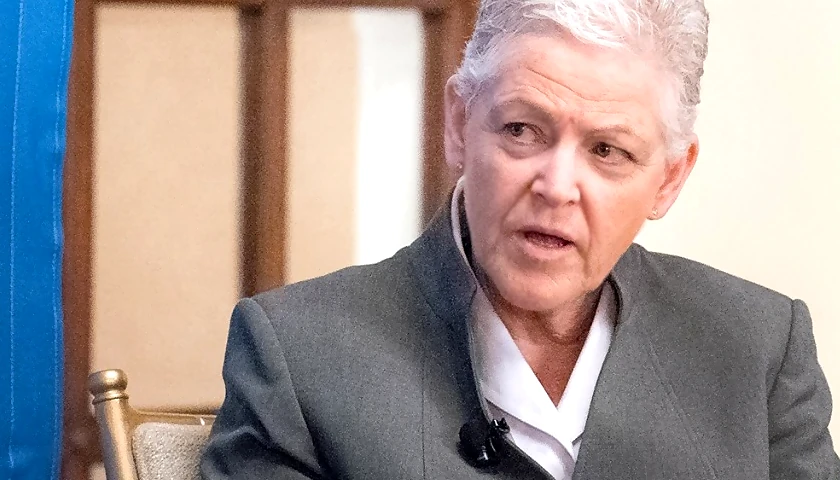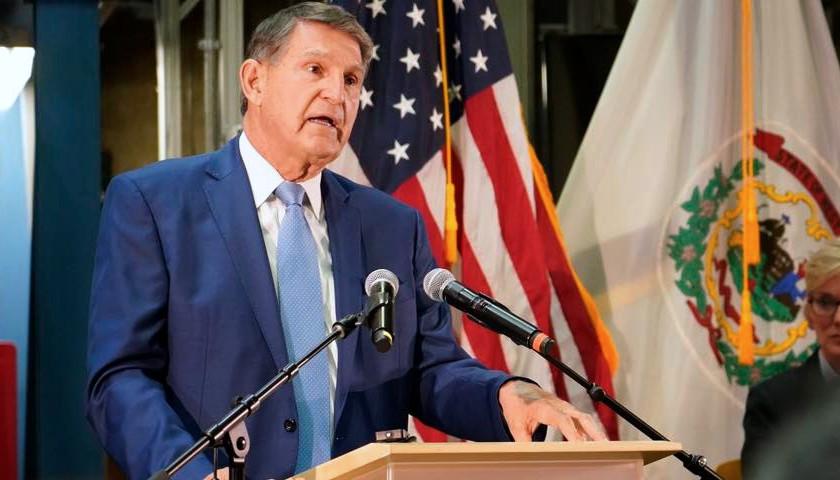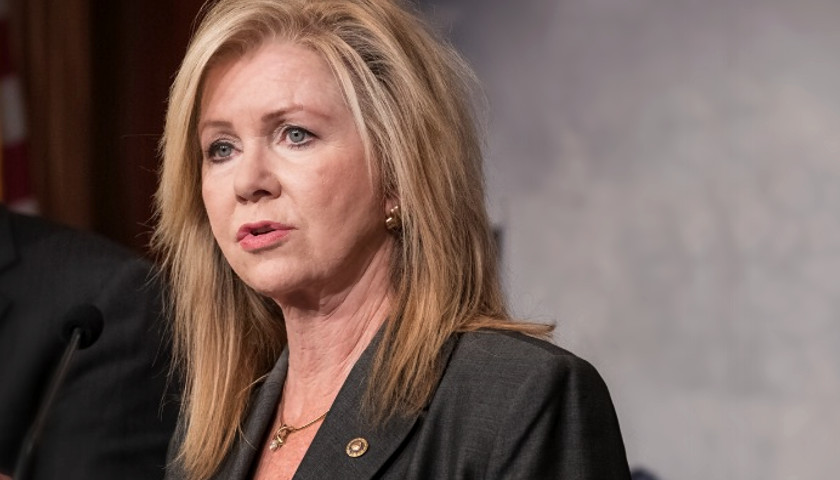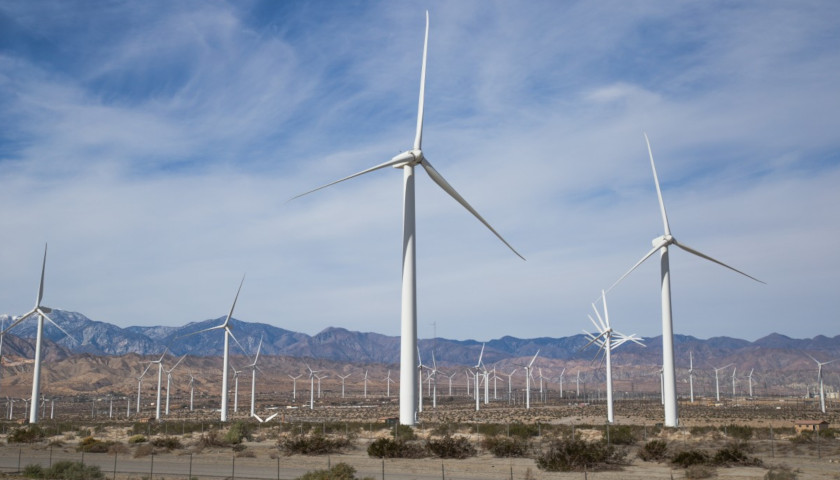Former EPA administrator and climate advisor Gina McCarthy was a key backer of the Inflation Reduction Act (IRA). The law set the country on an aggressive march toward greenhouse gas emission reductions, including advancing wind and solar. By some estimates, the green energy credits in the law alone will cost $3 trillion over their lifetimes.
Read the full storyTag: Sen. John Barrasso
China Poised to Cut Off US Military from Key Mineral as America’s Own Reserves Lay Buried Under Red Tape
China is planning to restrict exports of a key mineral needed to make weapons while a U.S. company that could be reducing America’s reliance on foreign suppliers is languishing in red tape, energy experts told the Daily Caller News Foundation.
The Chinese government announced on August 15 that it will restrict exports of antimony, a critical mineral that dominates the production of weapons globally and is essential for producing equipment like munitions, night vision goggles and bullets that are essential to national security, according to the Center for Strategic and International Studies (CSIS). Perpetua Resources, an American mining company, has been navigating red tape for years to develop a mine in Valley County, Idaho, that could decrease reliance on the Chinese supply of antimony, but the slow permitting process is getting in the way, energy experts told the DCNF.
Read the full storySen. Blackburn Confronts Stonewalling Secret Service Director at the RNC over Trump Assassination Attempt Coverup
Senators Marsha Blackburn (R-TN) and John Barrasso (R-WY) on Wednesday confronted U.S. Secret Service Director Kimberly Cheatle on the floor of the Republican National Convention (RNC) over the Secret Service actions that preceded the Saturday assassination attempt on former President Donald Trump.
The Tennessee Star confirmed the confrontation happened at the Fiserv Forum in Mulwaukee, Wisconsin where the RNC is being held. Blackburn and Barrasso confronted Cheatle upstairs in a luxury suite just prior to 9 p.m., just minutes before Blackburn uploaded video to the social media platform X with the caption, “[t]he American people deserve answers from the Secret Service.”
Read the full storyQ1 2024: Most Illegal Border Crossers Apprehended at Northern Border in U.S. History
In the first quarter of fiscal 2024, more foreign nationals were apprehended illegally entering the northern border than at any time in U.S. history.
They totaled 60,602, according to new data from U.S. Customs and Border Protection.
Read the full storyArizona U.S. Senate Candidate Kari Lake Endorsed by NRSC Chair Steve Daines
U.S. Senate candidate Kari Lake was endorsed on Tuesday by Senator Steve Daines (R-MT), who is the chair of the influential National Republican Senatorial Committee (NRSC).
In a post to X, the platform formerly known as Twitter, the NRSC published a statement announcing the endorsement for Lake.
Read the full storySenators Raise Questions about EV Mandates and Subsidies Going to China
The Senate Committee on Energy and Natural Resources has been scrutinizing the intersection of electric vehicle mandates and supply chains to meet them, and how EV subsidies could empower China, which controls a lot of those supply chains.
Sen. Joe Manchin, D-W.Va., chair of the committee, said he doesn’t have any problem with electric vehicles.
Read the full storySenate Republican Conference Chair Endorses Kari Lake, Predicts She ‘Will Shine Brightly for Arizona’
Arizona Senate candidate Kari Lake received a key endorsement on Monday from Senator John Barrasso (R-WY), the chair of the Senate Republican Conference, after officially announcing her candidacy for the U.S. Senate last week. In a statement to The Arizona Sun Times, Lake said she looks forward to working with Barrasso and other Senate Republicans with whom she shares priorities.
Barrasso said “Kari Lake will shine brightly for Arizona,” according to a statement obtained by German-owned Politico. Barrasso called lake “a generational communicator who is giving voice to Arizona citizens,” and said she “is in this race to make Arizona and America stronger.”
Read the full storySen. Blackburn Files Resolution to Update Senate Rules to Dismiss Democrats’ Delayed Impeachment Charges
U.S. Sen. Marsha Blackburn (R-TN) and U.S. Sen. Josh Hawley (R-MO) introduced a resolution Monday to update Senate rules to allow a motion to dismiss articles of impeachment against President Donald Trump for lack of prosecution. The resolution, which calls for immediate action on an impeachment, is available here. Blackburn tweeted, “Impeachment shouldn’t be playing out like an episode of House of Cards. If Pelosi fails to send the articles promptly over to the Senate, we should hold a vote to dismiss them and get on with our work. That’s why I’m co-sponsoring @Hawleymo’s impeachment rule change resolution.” Impeachment shouldn’t be playing out like an episode of House of Cards. If Pelosi fails to send the articles promptly over to the Senate, we should hold a vote to dismiss them and get on with our work. That’s why I’m co-sponsoring @Hawleymo’s impeachment rule change resolution. https://t.co/RCI0yPNDlo — Sen. Marsha Blackburn (@MarshaBlackburn) January 6, 2020 Blackburn, in a press release, called House Speaker Nancy Pelosi’s attempt to prevent an impeachment trial in the U.S. Senate “unprecedented.” “After three years of searching for a reason to impeach this president, Democrats in the House cannot seem to find the time to send…
Read the full storyTrump Allowing Select US Firms to Supply Huawei Has Some in Congress Fuming
by Rob Garver National security hawks who normally side with U.S. President Donald Trump on foreign policy issues are up in arms over his announcement on Saturday that he would indefinitely delay the imposition of tariffs on $300 billion of Chinese goods and relax restrictions on U.S. firms doing business with Chinese telecommunications giant Huawei. In a news conference Saturday that followed a bilateral meeting with Chinese President Xi Jinping at the Group of 20 summit in Osaka, Japan, Trump said: “U.S. companies can sell their equipment to Huawei. We’re talking about equipment where there’s no great national security problem with it. ‘Entity List’ This represents a sharp reversal by Trump, whose administration on May 16 added the company to the “Entity List” kept by the federal Commerce Department. Inclusion on that list is viewed as a sort of death penalty for foreign firms, because it prevents U.S. companies from doing business with them without express permission from the Commerce Department. In an announcement at the time, the department’s Bureau of Industry and Security said, “The U.S. Government has determined that there is reasonable cause to believe that Huawei has been involved in activities contrary to the national security…
Read the full storyCommentary: Congress’ Dated Energy Regulations Have Outlived Their Purpose
by Robert Romano At the height of 1970s inflation and in response to the 1973 Arab oil embargo, Congress passed the Public Utility Regulatory Policies Act (PURPA) of 1978. The legislation requires electric utilities to purchase energy from small renewable generators. It has also outlived its usefulness. Since that time, wind, solar and other renewables, excluding hydroelectric, have grown to almost 10 percent of U.S. electricity generation according to data compiled by the U.S. Energy Information Agency. Back in 1978, it was 0.14 percent. Obviously, a lot can change in 40 years. Fortunately, in 2005, Congress amended PURPA in order to take stock of rapid changes in the utility marketplace. In 2018, the Federal Energy Regulatory Commission (FERC) announced it was considering changes and reforms to the program, including which entities ought to be excluded from PURPA’s mandatory purchase of renewable energy requirement. One argument is that the renewable generators have a large enough market footprint to compete on their own without compelling utilities to use the renewable energy. Each local market is different, whereas in some areas, the additional generation can offset potential brownouts and might be desirable, in other areas with more abundant supplies, it’s simply a…
Read the full story









